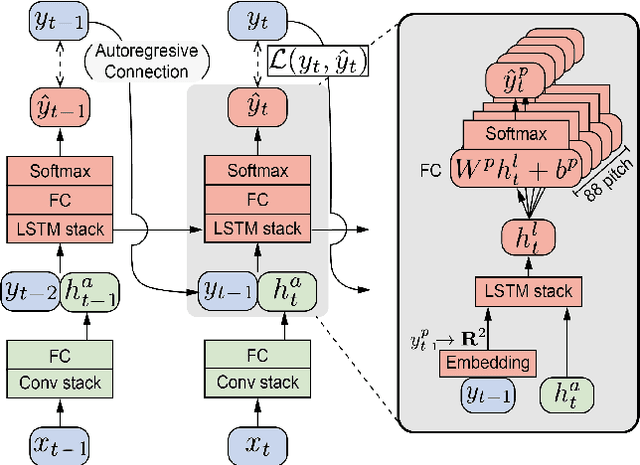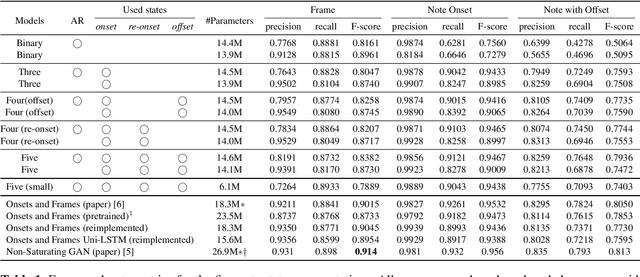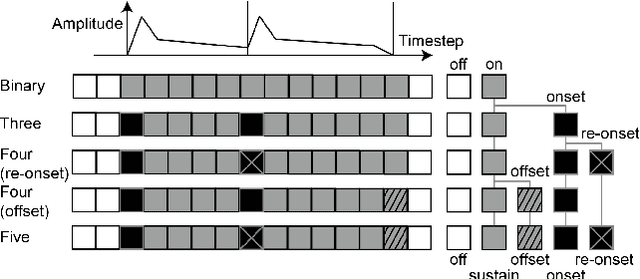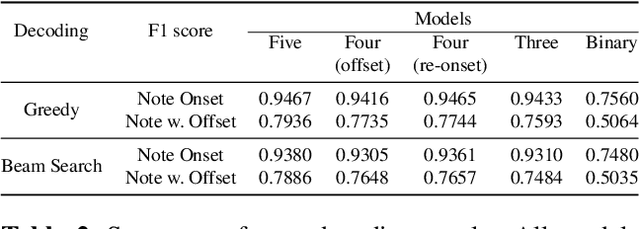Polyphonic Piano Transcription Using Autoregressive Multi-State Note Model
Paper and Code
Oct 02, 2020



Recent advances in polyphonic piano transcription have been made primarily by a deliberate design of neural network architectures that detect different note states such as onset or sustain and model the temporal evolution of the states. The majority of them, however, use separate neural networks for each note state, thereby optimizing multiple loss functions, and also they handle the temporal evolution of note states by abstract connections between the state-wise neural networks or using a post-processing module. In this paper, we propose a unified neural network architecture where multiple note states are predicted as a softmax output with a single loss function and the temporal order is learned by an auto-regressive connection within the single neural network. This compact model allows to increase note states without architectural complexity. Using the MAESTRO dataset, we examine various combinations of multiple note states including on, onset, sustain, re-onset, offset, and off. We also show that the autoregressive module effectively learns inter-state dependency of notes. Finally, we show that our proposed model achieves performance comparable to state-of-the-arts with fewer parameters.
 Add to Chrome
Add to Chrome Add to Firefox
Add to Firefox Add to Edge
Add to Edge